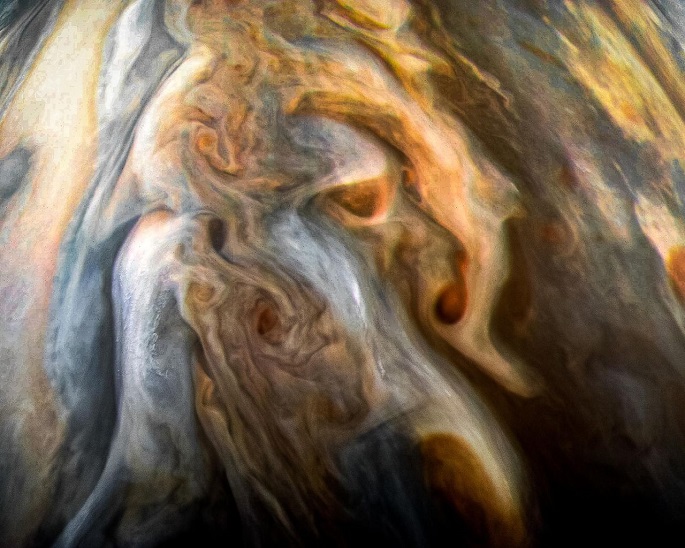NASA's Juno mission updates Jupiter's water mystery
Published : 19 Feb 2020, 14:10
NASA's Juno mission has provided its first results on the amount of water in Jupiter's atmosphere, according to a release by NASA's Jet Propulsion Laboratory (JPL) on Tuesday.
Published recently in the journal Nature Astronomy, the Juno results estimate that at the equator, water makes up about 0.25 percent of the molecules in Jupiter's atmosphere -- almost three times that of the Sun.
These are also the first findings on the gas giant's abundance of water since NASA's 1995 Galileo mission suggested Jupiter might be extremely dry compared to the Sun, according to the release.
An accurate estimate of the total amount of water in Jupiter's atmosphere has been on the wish lists of planetary scientists for decades. The figure in the gas giant represents a critical missing piece to the puzzle of our solar system's formation. Jupiter was likely the first planet to form, and it contains most of the gas and dust that was not incorporated into the Sun.
The leading theories about Jupiter's formation rest on the amount of water the planet soaked up. Water abundance also has important implications for Jupiter's meteorology and internal structure. While lightning -- a phenomenon typically fueled by moisture -- detected on Jupiter by Voyager and other spacecraft implied the presence of water, an accurate estimate of the amount of water deep within Jupiter's atmosphere remained elusive.
The Juno science team used data collected during Juno's first eight science flybys of Jupiter to generate the findings.
"Just when we think we have things figured out, Jupiter reminds us how much we still have to learn," Scott Bolton, Juno principal investigator at the Southwest Research Institute in San Antonio, was quoted as saying in the release.
"Juno's surprise discovery that the atmosphere was not well mixed even well below the cloud tops is a puzzle that we are still trying to figure out. No one would have guessed that water might be so variable across the planet," Bolton said.


